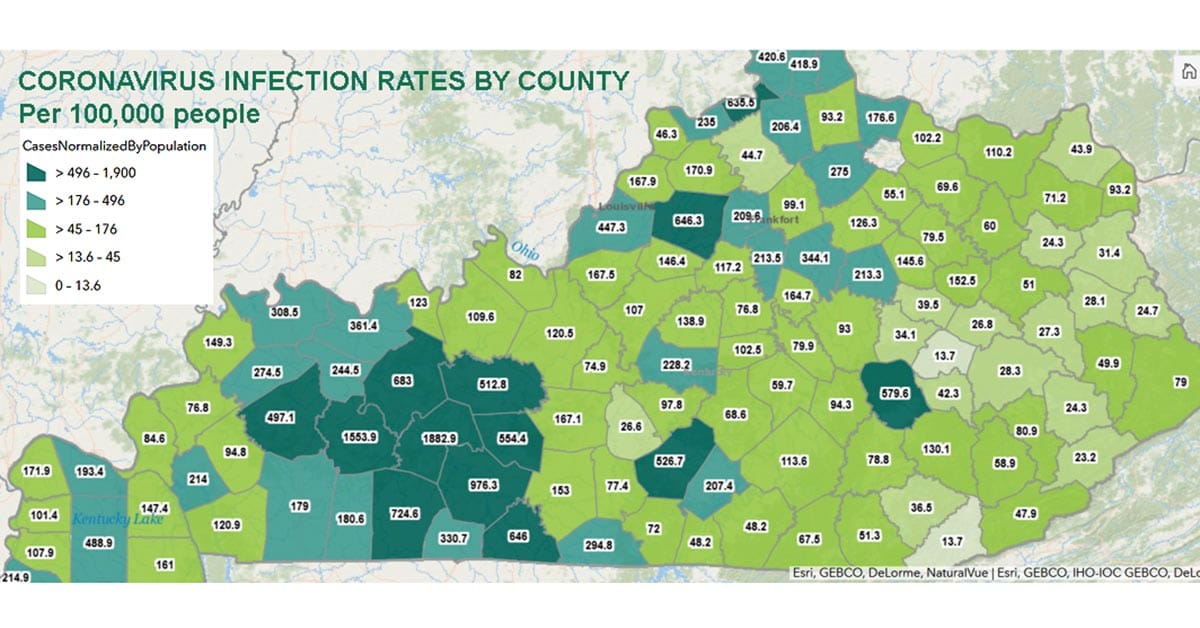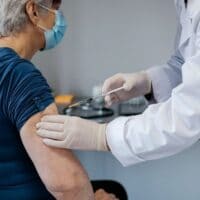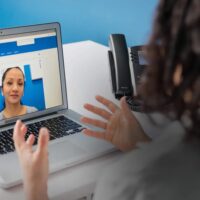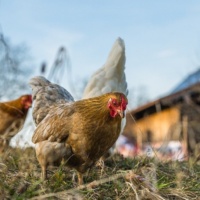Gov. Andy Beshear announced 234 new cases of coronavirus in Kentucky on Thursday, up from 170 new cases reported Wednesday and well above the average for the previous seven days.
“While we have had more cases today than we had yesterday, it still remains in a manageable area,” he said at his regular news briefing. “We’ve got to make sure that we can keep our numbers of new cases in this type of range.”
Beshear said that while the state’s reopening is still on track, and the capacity of its health care system to handle cases of COVID-19 is still good, “It’s a very fragile place where we are.”

Thursday’s report brought the state’s total number of cases to 13,197. Beshear said there are 400 Kentuckians currently hospitalized with the virus, 68 in intensive care and at least 3,506 have recovered. (Click here for the daily report.)
Beshear pleads with Kentuckians to wear masks
He encouraged Kentuckians to continue following the state’s “Healthy at Work” guidelines and pleaded with them to wear masks to thwart the spread of the virus, especially by people who don’t know they have it.
To the many who aren’t wearing masks, Beshear said, “We need you to reconsider. It’s not a test of your manhood, whether you wear a mask or not. I think it’s a test of your compassion, maybe even your faith if you’re willing to wear one of these to protect a fellow human being. Remember, we all have a duty to each other, even folks we’ve never met.”
He said later, “Admittedly we’ve seen a drop-off in compliance of people following the rules and best practices for COVID, and I know they are tired. … Everybody in the public health field right now is saying the key, the key, is wearing a mask. And you see countries where everybody is willing to wear a mask; it’s their patriotic duty, and you see their cases plummet really fast.”
Virus is in every area of the state
After reading the name of every county in the state with a new case, Beshear said he reads each of them every day is to remind Kentuckians that the virus is in every area of the state.
“Just because it seems like there’s only been 10 cases in your county, we know there are more, and as we see, say, today from Shelby or what we saw from Warren, which continues, it can go from a few cases to a whole lot fairly quickly,” he said. Shelby County, which has a surge lately, now has 314 cases; Warren, which has been a hotspot, ranks second in the state with 1,302.
Counties with the highest number of cases Thursday were Jefferson, 43; Shelby, 33; Harrison, 14; Fayette, 13; and Scott, 12.
Beshear said three more people have died of COVID-19, bringing the state’s death toll to 520. The deaths were a 91-year-old woman from Jefferson County, an 87-year-old man from Logan County and a 79-year-old man from Perry County.
In long-term care facilities, 25 more residents and seven more staff tested positive for the virus, bringing those numbers up to 1,577 and 754 respectively, across 162 facilities. There have been 334 deaths from covid-19 in long-term care facilities, including three employees. Click here for the daily report.
The number of tests in the state increased by 6,500 since Wednesday, for a total of 336,267. Beshear said this is a “good trajectory,” but the makeup of who is getting tested has changed, with many tests now of people getting elective medical procedures, and fewer at drive-thru sites.
“We need people to do both,” he said. “We can be safer, we can reopen more, we can later look at increasing capacities of different things if we can keep our testing up,” he said. “That includes our drive-thru testing. We’ve got to know some of the asymptomatic rates out there and we’ve got to be able to catch those cases.” Click here to find a site to get tested.
Asked if he will soon allow groups of 50 or more to gather, Beshear said it will be important to watch what happens as the state allows groups of up to 50, which will be allowed on June 29, and as restaurants and other businesses capacity increases to 50%.
“We’re going to have to be really careful when we get to 50 and under, and when we hit 50% capacity in most places, with what we’re seeing going on around the rest of the country,” he said. “That’s a time to just look really carefully about where we are and if it is still under control and manageable to take that next step. But we’re seeing spikes in a lot of different places.”
He added that the advice from Dr. Deborah Birx, the White House coronavirus coordinator, is to keep contacts to around half of pre-COVID rates as a manageable range until there is a vaccine.
In other covid-19 news on Thursday:
- Lt. Gov. Jacqueline Coleman said the Team Kentucky Fund has given a total of $350,215 to 421 households since it was launched in March. She said there are 398 applications pending approval. Kentuckians can apply for the funds at CAPKY.org.
- The Fancy Farm Picnic in far Western Kentucky will take place Aug. 1, but will look different, with the statewide political speaking moving in the local school gymnasium and being limited to people tickets distributed through political channels. Beshear said he wants to make sure the organizers at St. Jerome Catholic Church are taking a responsible approach before he decides to attend and will go only if it sets a safe example for the public.
- Beshear spent much of Thursday’s briefing answering questions about the ongoing challenge of getting unemployment claims resolved. Leaders of the state House’s Republican majority issued a statement asking the Democratic governor to address that and other issues related to the pandemic. They also mentioned long-term care, state prisons, privacy and Beshear’s decision-making process for reopening. “We call upon the governor to address these issues, to take decisive action, and to empower stakeholders to do what needs to be done to open this state safely, quickly, and without unnecessary requirements,” they said.
- Beshear signed a proclamation marking Friday, June 19, as Juneteenth National Freedom Day in Kentucky, commemorating the last official announcement of the end of slavery in the U.S. Beshear said he will ask the legislature to make it an official state holiday.
- A study published in the New England Journal of Medicine found that patients in Italy and Spain were more likely to have complications from COVID-19 if they have type A blood and less likely if they have Type O.
- In an interview with McClatchy Co. newspapers, Dr. Anthony Fauci, director of the National Institute of Allergy and Infectious Diseases, “pledged to publicly oppose any effort by the Trump administration to rush an announcement of a COVID-19 vaccine by the November election unless the medicine has been proven “safe and scientifically sound,” Michael Wilner reports. “Take that to the bank,” Fauci said. “There is no chance in the world that I’m going to be forced into agreeing to something that I don’t think is safe and scientifically sound. I’ll guarantee you that.”
- The Kentucky Department of Education posted the June 15 education task force video and a news release on the same day that expands on five public-health aspects for school districts to consider as they work toward reopening. They include masks, social distancing, temperature checks and other screening, hand and surface hygiene, and tracing contacts of the infected. It says a “Healthy at School” guidance document will be released “at a later date.”
- On June 17, the education department posted a news release with a link to a June 16 special superintendents’ webcast and a summary of the event, that largely focuses on the impact of the virus on our schools.
Melissa Patrick is a reporter for Kentucky Health News, an independent news service of the Institute for Rural Journalism and Community Issues, based in the School of Journalism and Media at the University of Kentucky, with support from the Foundation for a Healthy Kentucky. She has received several competitive fellowships, including the 2016-17 Nursing and Health Care Workforce Media Fellow of the Center for Health, Media & Policy, which allowed her to focus on and write about nursing workforce issues in Kentucky; and the year-long Association of Health Care Journalists 2017-18 Regional Health Journalism Program fellowship. She is a former registered nurse and holds degrees in journalism and community leadership and development from UK.






